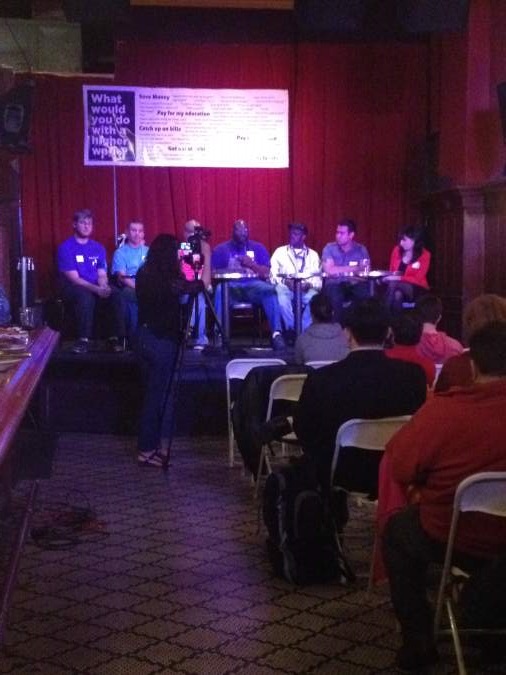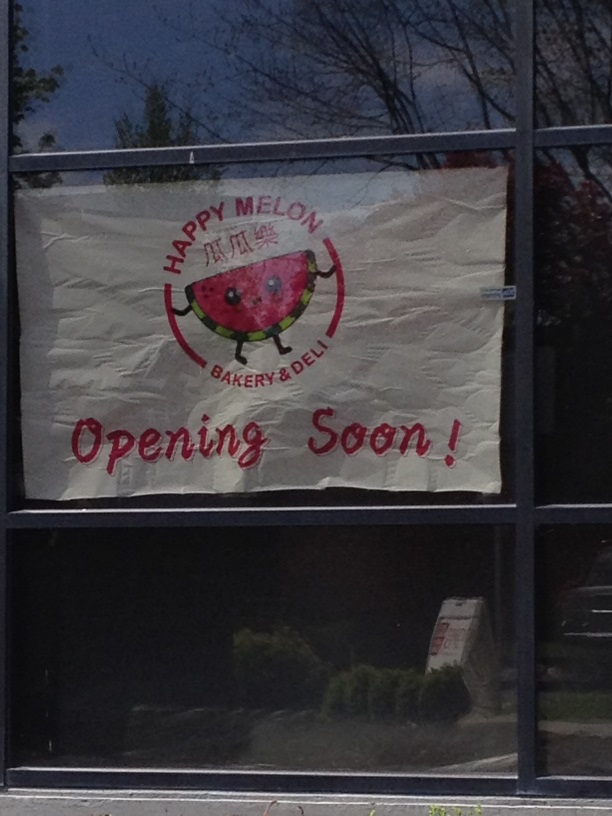A local alliance of labor rights organizations agitating for a higher minimum wage is making fast food workers a centerpiece of its campaign.
Good Jobs Seattle last week featured two fast food employees in its Pioneer Square “story slam,” a consciousness-raising presentation intended to showcase the struggles of King County’s low wage workers. “Pancho,” a north Seattle resident supporting two daughters in Mexico, and “Wilton”, a KFC staffer who in November joined New York City’s fast food strike, participated in the panel moderated by freelance labor journalist Sarah Jaffe.
“I came to this country in 1990 and started working at KFC in 1991,” said Wilton, who immigrated from the West Indies. “I would think I would be making $12, $15, but no. It’s very hard. We don’t have no insurance. We don’t have no benefits. We don’t have anything. We can’t keep working for $7.25.”
Although Washington’s hourly minimum wage is $1.94 higher than New York’s minimum wage, Pancho – speaking through a Spanish translator – said the extra money’s not enough to cover his rent, utility and transportation costs.
“When they hired me, they told me when I learned to cook and use the grill, they will raise my salary,” he said. “I learned to do all of my duties, but they never raised my salary. My salary after four years is still minimum wage.”
President Obama’s latest budget proposal calls for a $9 minimum wage, but labor activists say that’s not sufficient pay for the 13 million workers flipping burgers, washing dishes, manning counters and sweeping floors for the nation’s multi-billion dollar fast food industry. Fast Food Forward, the group behind the November and April walkouts in New York City, has stressed wage inequality in its literature, pointing out the average fast food CEO in one day makes twice as much money as the average shift worker earns over the course of a year.
Pancho pointed out that fast food workers’ earning potential is limited because fast food restaurants don’t want to assume the benefits burden that accompanies an offer of full-time employment.
“I work 28 hours and that 28 hours, I don’t have enough money,” Pancho said. “Me, as a father, I want to provide the best for my daughters so they can have a future.”








